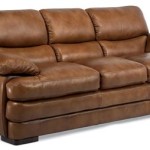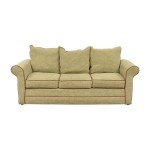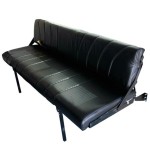Essential Considerations for Fixing Sofa Bed Sag
Sofa bed sag is a common issue that can quickly make your comfortable furniture uncomfortable. Whether you use your sofa bed regularly or occasionally, addressing the underlying causes of sag is crucial to maintaining its functionality and extending its lifespan. This article explores the essential aspects of fixing sofa bed sag, providing a comprehensive guide to restoring your furniture's support and comfort.
Identifying the part of speech of "fix sofa bed sag" is crucial for understanding its function in the sentence. "Fix" is a verb, indicating an action, while "sofa bed sag" acts as a noun, describing the problem that needs to be addressed. This distinction helps us understand the relationship between the action of "fixing" and the issue of "sofa bed sag," allowing us to focus our discussion on the key aspects involved in resolving the problem.
Inspecting the Frame and Springs
The frame and springs are the structural foundation of your sofa bed. Inspecting them for any damage or weakness is essential in identifying the root cause of the sag. Loose screws, broken slats, or sagging springs can significantly contribute to the loss of support. Tightening screws, replacing broken parts, or reinforcing sagging springs can often resolve the issue and restore the frame's stability.
Re-Tightening or Replacing the Upholstery
Over time, the upholstery on your sofa bed can stretch or become loose, causing the cushions to sag. Re-tightening or replacing the upholstery fabric can help restore the shape and support of the seating area. Inspect the fabric for any tears or damage that may need repair or replacement. If necessary, consult with a professional upholsterer for proper installation and materials.
Checking the Mattress and Base
The mattress and base play a significant role in preventing sofa bed sag. Ensure that the mattress is the correct size and firmness for your needs. A mattress that is too small or too soft can contribute to sagging. Additionally, inspect the base for any damage or warping that may cause uneven support. Leveling the base and replacing any damaged components can help improve the overall stability of the sofa bed.
Reinforcing the Legs
The legs of your sofa bed provide support and help distribute the weight evenly. If the legs are loose or damaged, they can contribute to sagging. Tightening the legs or replacing them with more sturdy ones can help stabilize the frame and prevent further sagging. Choose legs that are appropriate for the size and weight of the sofa bed to ensure optimal support.
Appropriate Usage and Maintenance
Regular usage and proper maintenance can significantly impact the longevity of your sofa bed. Avoid overloading the sofa bed with excessive weight or using it as a permanent sleeping solution. Distribute the weight evenly when sitting or sleeping on it, and follow recommended weight limits to prevent unnecessary strain on the frame and springs.
Conclusion
Fixing sofa bed sag requires a comprehensive approach that addresses both structural and functional aspects. By inspecting the frame and springs, re-tightening or replacing the upholstery, checking the mattress and base, reinforcing the legs, and ensuring appropriate usage and maintenance, you can effectively restore the support and comfort of your sofa bed. Remember to consult with professionals when necessary to ensure proper repairs and extend the lifespan of your furniture.

How To Re Cushions And Fix A Sagging Couch Comfort Works Blog Sofa Resources

Easy Inexpensive Saggy Couch Solutions Diy Makeover Love Of Family Home

Pin On Diy Furniture Sofa

Fixing Sagging Sofa Cushions Guide Gb Foam Direct

How To Fix A Sagging Couch 14 Steps

Furniture Sofa Bed Repair Lifts Fix Sagging Upholstery Firmer Seat 6 Panels

How To Fix A Sagging Couch In 5 Steps Taskrabbit Blog

4 Ways To Fix Sagging Sofa Cushions Wikihow

Fixing Saggy Couch Cushions Grove House Reno

Tip How To Easily Fix Saggy Couch Cushions Instrupix








